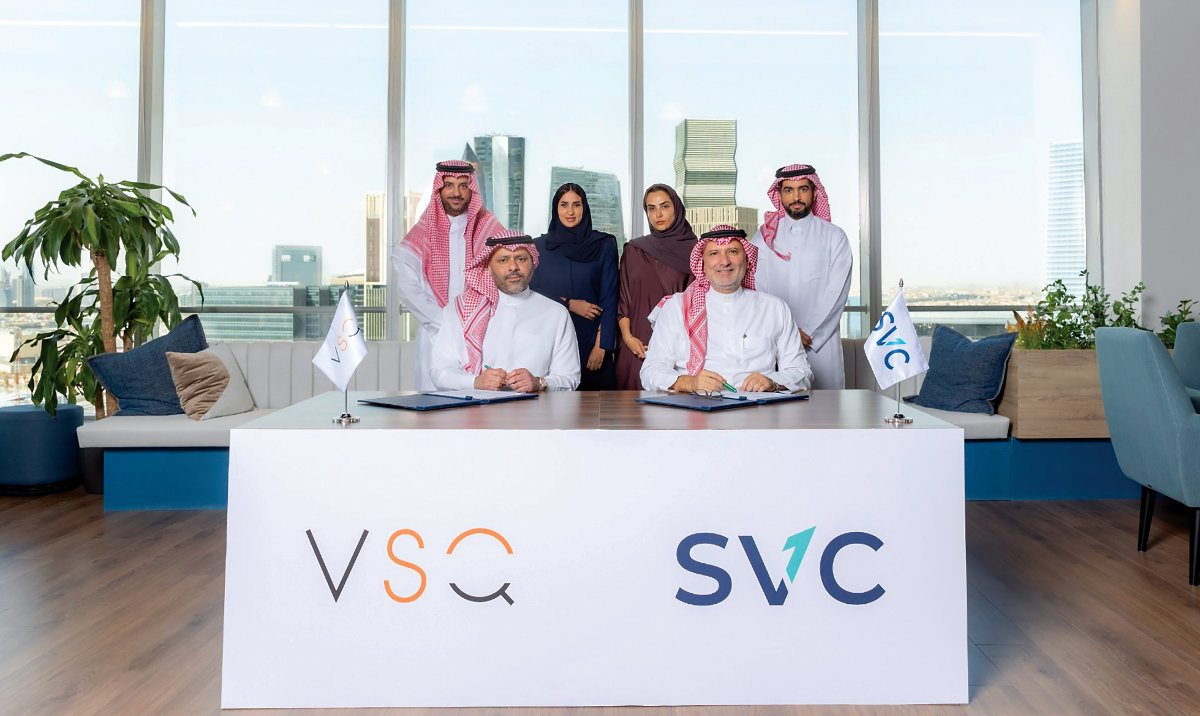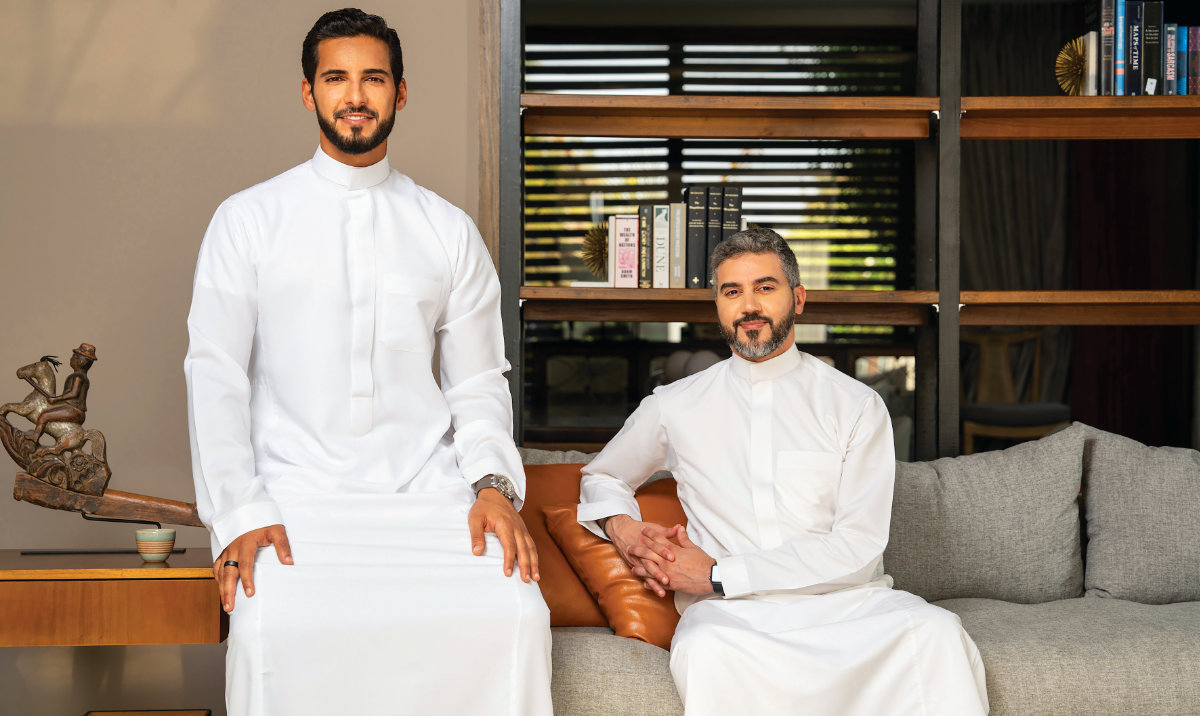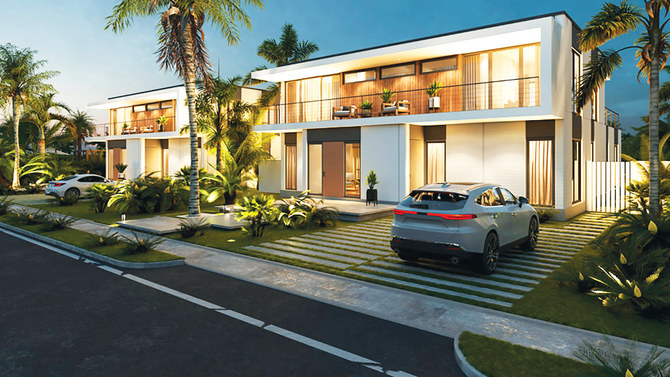CAIRO: Saudi firms have taken the venture ecosystem by storm with startup activity dominating activity in recent weeks.
Saudi Aramco’s $500 million venture capital subsidiary Wa’ed Venture made global headlines as it co-led a $52 million series B funding round in US-based construction technology startup Mighty Buildings.
Founded in 2017, Mighty Buildings is recognized for its work in 3D printing technology to create prefabricated homes that are both environmentally friendly and climate resilient.
The series B proceeds are earmarked for the expansion of Mighty Buildings’ factory footprint in North America.
Additionally, the company aims to extend its operations to new markets, specifically targeting Saudi Arabia and the UAE.
“This recent funding underlines Mighty Buildings’ leadership in the modular homebuilding market. It will accelerate our growth by funding the international expansion to one of the most exciting homebuilding regions in the world,” said the firm’s Chief Financial Officer Rene Griemens.
“We are thrilled about the support from such esteemed investors for our mission: solving the housing and climate crises by transforming the way the world builds homes,” Griemens added.
The investment aligns with Wa’ed Venture’s focus on nurturing technology innovations and adds another layer to Saudi Arabia’s growing interest in sustainable and advanced construction solutions.

Established in 2018, SVC is a government investment arm affiliated with the SME Bank and the National Development Fund. (Supplied)
“The team at Mighty Buildings has reaffirmed our confidence in the incredible and diverse potential for innovation lying within the construction tech industry,” said Fahad Alidi, managing director at Wa’ed Ventures.
“Our investment in the company reflects our belief that innovative materials, as those used in Mighty Buildings’ proprietary 3D-printing, will be a major driver for scalability and sustainability of homebuilding in the Gulf Region,” Alidi added.
With this fresh infusion of capital, the startup has now amassed a total of $153 million in funding since its inception.
The investment round also saw contributions from BOLD Capital, Khosla Ventures, and 15 other new and existing investors.
Saudi Arabia’s Barakah raises $1.5m in seed funding for surplus food management
Saudi-based online marketplace Barakah has successfully completed a seed funding round, raising $1.5 million.
The startup focuses on helping food retailers manage their surplus inventory, claiming to have saved over 100,000 meals from going to waste in a 10-month period.
The investment round was led by Hambro Perks Oryx Fund and included participation from other investors such as 500 Global, +VC, KAUST Innovation Ventures, and Annex Investments.
The funding aims to enhance Barakah’s existing operations and facilitate its planned expansion into additional major cities in Saudi Arabia beyond its current markets of Riyadh and Jeddah.
“Our aim at Barakah is to reshape perceptions around surplus food,” said Abdulaziz Al-Saud, CEO of Barakah.
“We’ve created a platform where excess inventory transforms into a viable business opportunity. Our partners gain a valuable solution to drive revenue and operational efficiency, while our customers enjoy fresh meals and products at unmatched prices. Beyond curbing waste, Barakah is building a bridge between food retailers and discerning consumers,” Al-Saud added.

Saudi-based online marketplace Barakah focuses on helping food retailers manage their surplus inventory, claiming to have saved over 100,000 meals from going to waste in a 10-month period. (Supplied)
Ivo Detelinov, general partner of Hambro Perks Oryx Fund, noted that the investment aligns with their interest in startups that address challenges like food waste.
Similarly, Gary Rubin, Head of KAUST Innovation Ventures, mentioned that Barakah’s objectives coincide with KAUST’s focus areas of sustainability.
Saudi Venture Capital invests $5m in VentureSouq’s fintech fund
Saudi Venture Capital has announced a $5 million investment in a fintech fund managed by UAE-based VentureSouq.
The focus of the fund will primarily be on early-stage fintech startups.
The agreement was formalized in a ceremony attended by key figures from both SVC and VSQ, including Nabeel Koshak, CEO and board member at SVC, and Maan Eshgi, general partner at VSQ.
“The investment in the fintech fund by VSQ is part of SVC’s Investment in Funds Program to support the development of the VC ecosystem in Saudi Arabia for all sectors and stages,” Koshak said.
“This investment also comes to foster the growth witnessed recently by the fintech sector, which made it at the forefront of the venture capital scene in Saudi Arabia in 2022 in terms of the number of deals and value of investment,” he added.
Maan Eshgi of VSQ also commented on the deal, noting the significance of fintech as a rapidly evolving field.
Eshgi cited Saudi Arabia’s leading role in the Middle East and North Africa region in fintech innovation, particularly in emerging technologies like web3, artificial intelligence, and quantum computing.
HIGHLIGHT
Founded by Ali Merie and Mansour Hmaid, Equiptal operates a marketplace aimed at connecting contractors with heavy equipment suppliers.
Established in 2018, SVC is a government investment arm affiliated with the SME Bank and the National Development Fund.
It aims to facilitate financing for startups and SMEs across various stages of growth by investing $2 billion in funds and co-investments.
To date, SVC has invested in 43 funds, which have subsequently invested in over 700 companies.
Equiptal secures $1m in pre-seed funding led by Plug and Play
Equiptal, a logistics startup based in Saudi Arabia, has raised $1 million in a pre-seed funding round led by Plug and Play Middle East, along with participation from angel investors.
Founded by Ali Merie and Mansour Hmaid, Equiptal operates a marketplace aimed at connecting contractors with heavy equipment suppliers.
The fresh capital will primarily be used to expand the startup’s team and increase its market presence in Saudi Arabia.
The company aims to address specific pain points in the construction industry, particularly challenges in sourcing machinery for both short and long-term rentals.
Equiptal has developed a fleet management solution using telematics technology to help contractors optimize the usage of their equipment, thereby reducing costs and minimizing downtime.
Since its inception last year, the startup has onboarded 700 suppliers and currently serves around 100 contractors.
















